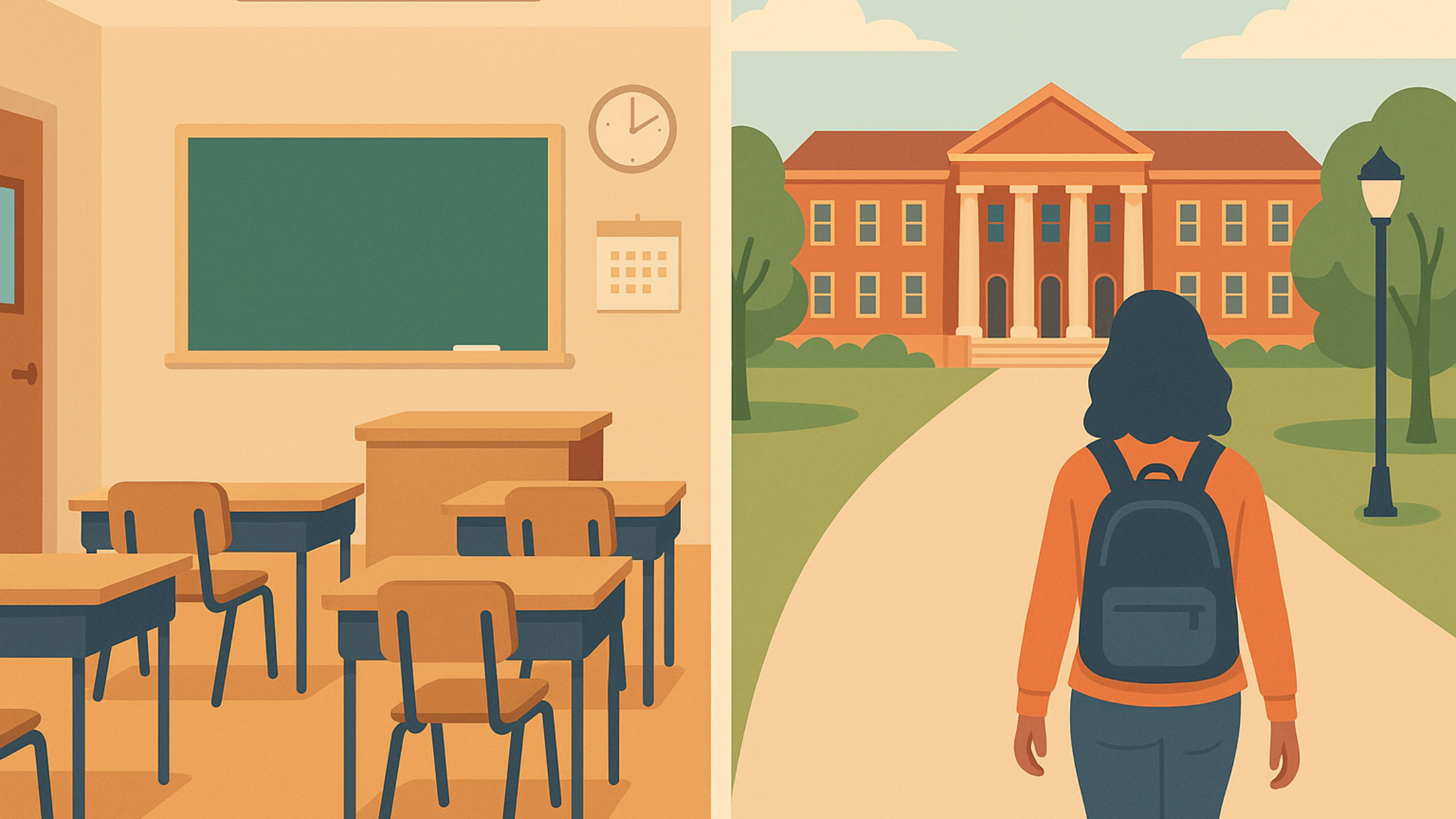The #1 Skill That Sets College-Ready Students Apart

Why Self-Advocacy Is the Most Overlooked and Essential Skill for Postsecondary Success
When we talk about college readiness with our students, we often focus on the visible metrics, rigorous coursework, standardized test prep, solid GPAs, and extracurricular involvement.
But there’s one skill that doesn’t show up on transcripts or college applications, and yet it’s often the make-or-break factor in whether students thrive once they get to campus.
That skill is self-advocacy.
At Minds Matter DC, we see this play out every year. Our students don’t just need access to college, they need the tools to persist once they get there. And self-advocacy is at the heart of that journey.
What Is Self-Advocacy and Why Does It Matter?
Self-advocacy is the ability to recognize your needs and effectively communicate them in pursuit of your goals.
It looks like:
-
Visiting a professor during office hours to ask for support.
-
Contacting the disability services office to request accommodations.
-
Scheduling time with an academic advisor when feeling overwhelmed.
-
Raising your hand , even when no one else does, to say, “I don’t understand.”
These may seem like small moments. But for first-gen and under-resourced students, they’re often monumental.
In college, these skills aren’t optional, they’re essential.
The Hidden Challenge and Why Some Students Struggle
In many high schools, especially those with supportive educators and tight-knit communities, adults play a hands-on role in a student’s journey, advocating for them behind the scenes, offering reminders, and ensuring they don’t fall through the cracks.
But when students transition to college, the expectation shifts.
Support becomes available, but not automatic.
Resources exist, but only for those who seek them out.
And no one calls home when a student misses three classes in a row.
This gap disproportionately impacts students from low-income backgrounds, first-generation students, and students of color, many of whom have not been taught or encouraged to use their voice in institutional settings.
How Educators Can Help Students Build Self-Advocacy in High School
The good news? Self-advocacy can be taught. It can be modeled, encouraged, and practiced, long before students ever set foot on a college campus.
Here are a few ways educators can plant the seeds:
1. Shift From Speaking For to Speaking With
Encourage students to lead their own meetings with counselors or teachers. Prompt them to articulate their goals, needs, and questions, even if it takes extra time.
🗣 “Tell me how you’d explain this situation in your own words.”
2. Normalize Help-Seeking Behaviors
Reframe the narrative: asking for help is not a weakness. It’s a strength. Share stories, your own or others’, of when seeking support led to growth or opportunity.
3. Model Professional Communication
Teach students how to write emails to teachers, request extensions, or ask for recommendations. These aren’t just tasks, they’re real-life communication tools.
4. Use Role-Playing for Real-World Scenarios
What would you do if your financial aid didn’t cover your books? If your roommate crossed boundaries? If your professor said something harmful? Practicing these conversations builds muscle memory.
Self-Advocacy in Action
We’ve watched our Minds Matter DC students navigate college systems with resilience, often because they had early opportunities to use their voice.

One student emailed a professor after receiving a confusing syllabus, resulting in a one-on-one meeting that clarified expectations and strengthened their confidence.

Another reached out to student services to secure mental health support, knowing that their well-being mattered as much as their academics.

A third advocated for a research position by pitching themselves to a faculty member, turning a casual introduction into a career-shaping experience.
These stories aren’t rare. They’re repeatable. But only if we prepare students for them.
Self-Advocacy Is a Survival Skill
College access without preparation is a setup.
College preparation without voice is incomplete.
If we want equity in outcomes, not just admissions, we must center self-advocacy as a core college readiness skill.
At Minds Matter DC, we believe in equipping students not just to get into college, but to own their experience once they’re there. Self-advocacy isn’t a soft skill, it’s a survival skill.
And with your partnership, we can help students develop it, one voice, one choice, one moment at a time.
